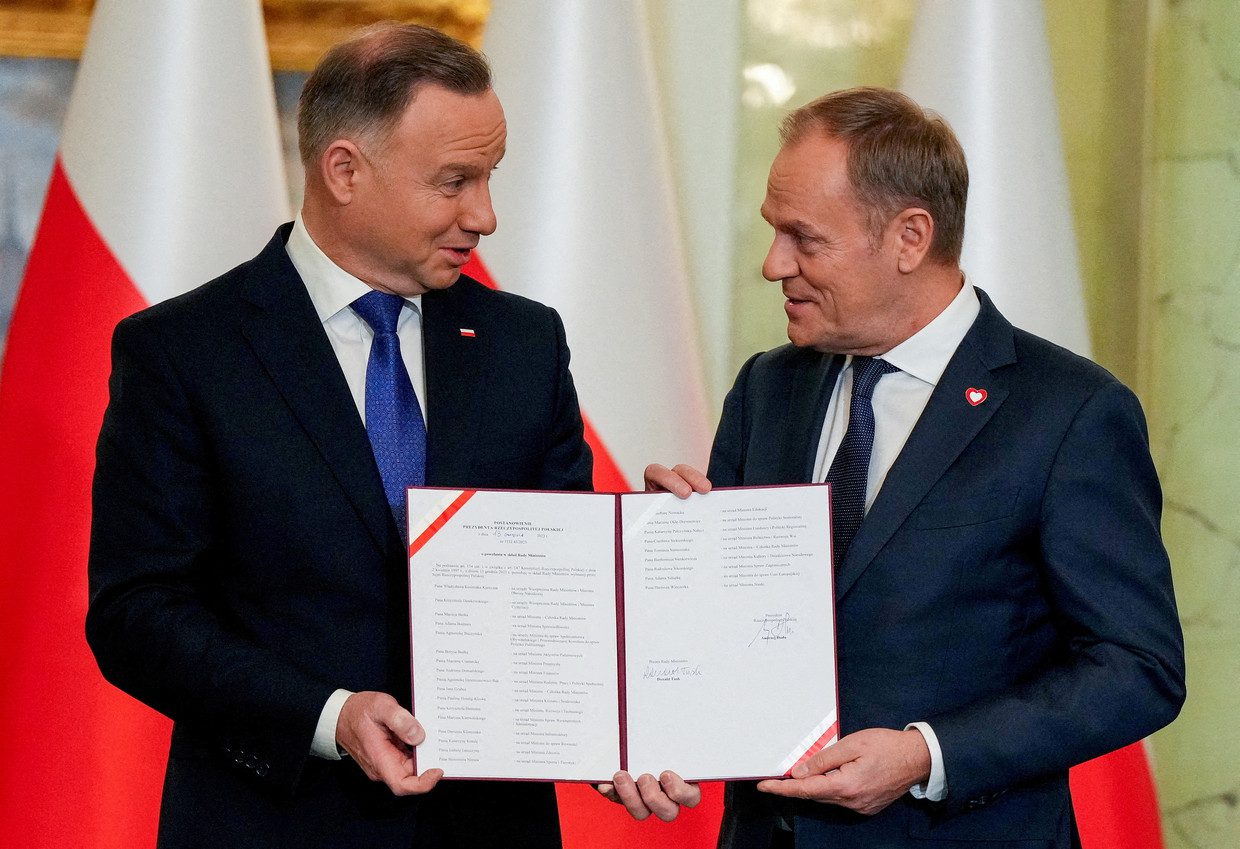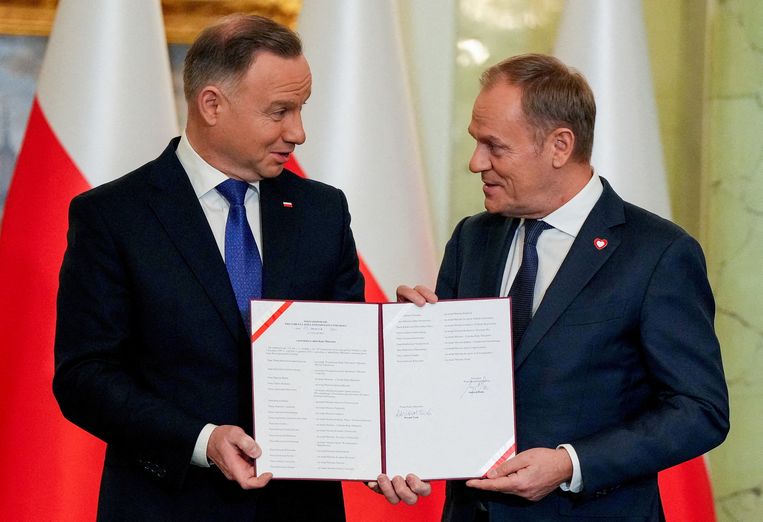
This represents the first confrontation between the president, who belongs to the right-wing nationalist Law and Justice Party, and the new pro-European Union government. Duda’s veto is seen as one of the biggest obstacles to Tusk’s ambitions to reverse the long-standing Law and Justice policy. Duda will be president for another year and a half.
Less than two weeks after the Tusk government took office, Duda has already begun using his veto power. He says he is using it to prevent the government from reforming Poland’s public broadcaster TVP through “flagrant violations of the Constitution and the principles of a democratic constitutional state.”
Tusk took the public broadcaster out of the hands of the Law and Justice Party last week, turning it into the mouthpiece of right-wing nationalist Poland during his eight years in government. The new government promised to make public channels independent, and last Wednesday fired broadcast chiefs, who had made a habit of presenting Tusk on TV news as the devil and praising PiS policy. The new board of directors temporarily blocked the news channel TVP Info.
Law and Justice Party parliamentarians are trying to save their mouth. So they barricaded themselves in the radio headquarters with their party leader, Jaroslaw Kaczynski. They argue, among other things, that the government broke the law by not seeking permission from the media regulator to make staff changes at TVP. The Ministry of Culture indicates that the Supervisory Council is under the control of the Law and Justice Party.
Duda’s veto poses a problem for the Tusk government. Although Duda does not have the right to veto the entire budget, his blocking of part of it still puts an end to many of Tusk’s election promises for the new year. For example, it is not only planned funding for public broadcasting that is now blocked. Large increases in civil servant salaries, such as a 30% salary increase for teachers, cannot go ahead either.
“The president’s veto deprives kindergarten teachers and beginning teachers of funds,” Tusk wrote on X. “I reassure those affected: we will find a solution.”
The public spending law had already been approved by Parliament. The Ministry of Culture will receive 3 billion zlotys (0.7 billion euros) to spend on public radio and television channels – roughly the same amount as in recent years under PiS governments. Duda says he will present his own bill after Christmas and calls on Parliament to approve this proposal before New Year’s Eve. He promised to keep increasing teachers’ salaries.
An easy solution is not on the horizon for former European Council President Tusk. The parliamentary majority of the three parties in his coalition is too small (248 seats out of 460) to override Duda’s presidential veto. This requires a three-fifths majority (276 seats).

“Infuriatingly humble social media buff. Twitter advocate. Writer. Internet nerd.”








